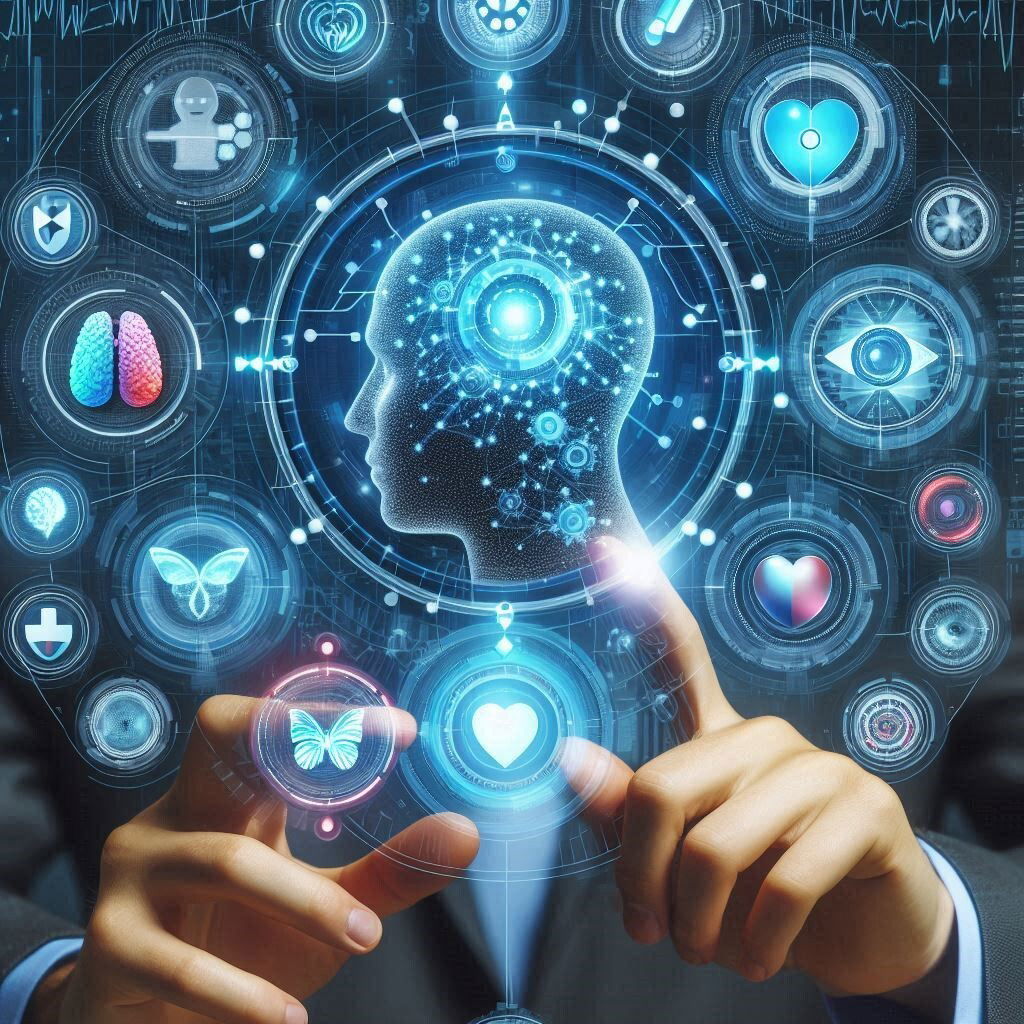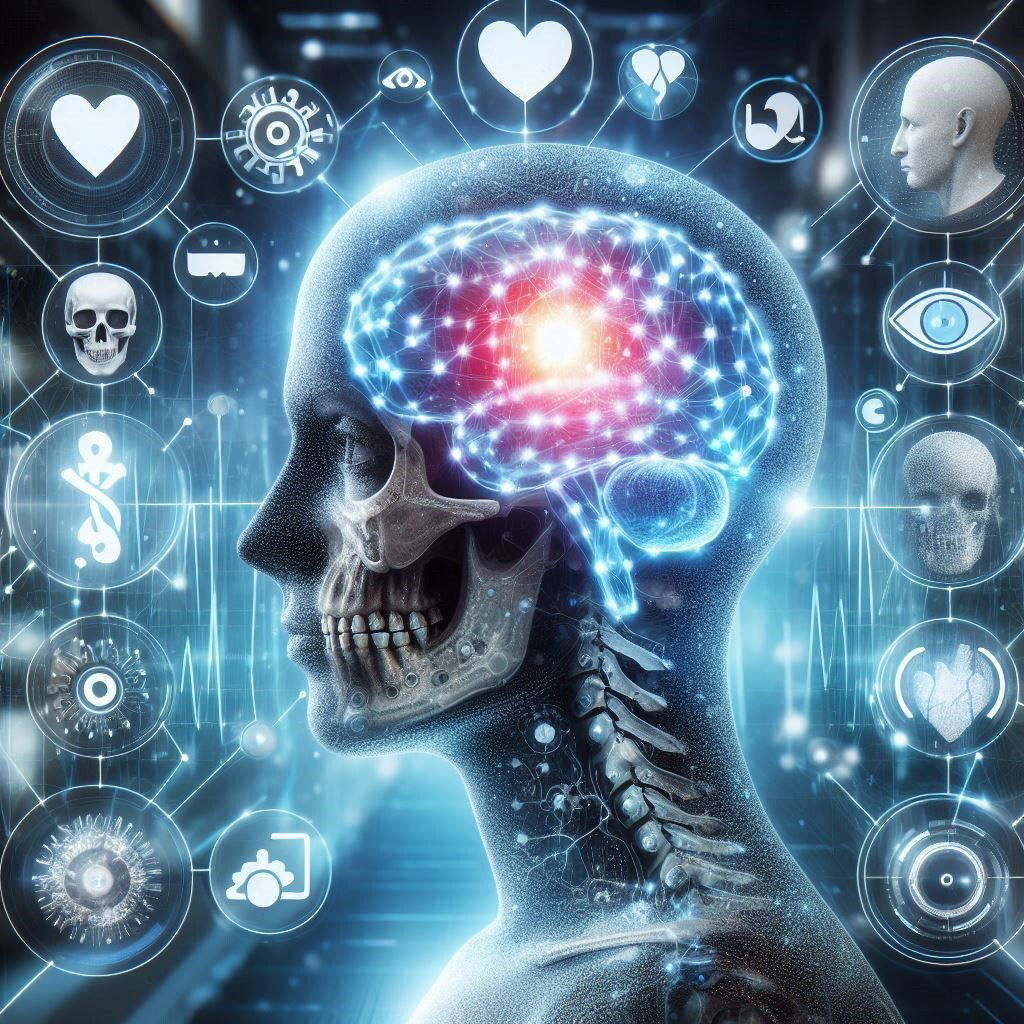10 Revolutionary Uses of Artificial Intelligence in Mental Health

Introduction
Artificial intelligence AI is bringing about unprecedented changes in many sectors and the mental health care sector is no exception. AI’s use in mental health is contributing towards better understanding, and diagnosis of mental illness and better patient care. AI uses advanced algorithms and machine-learning tools to provide more personalized and efficient solutions.
Top Boon for AI in Mental Health
AI Chatbots and Therapy
One of the amazing ways in which AI is transforming the mental health care sector is through the use of chatbots. These chatbots can provide immediate support to those undergoing mental health issues. They are designed to simulate conversation and are programmed to help users alleviate symptoms of anxiety and depression.
Personal Assistance
The AI chatbots offer personalized assistance for those undergoing therapy. They achieve this by analyzing users’ responses and giving a tailored coping strategy. The service is available 24/7 and can provide the user with help at their point of need. This can be beneficial for a person who may be having a mental crisis which mostly happens at night.
Diagnosing Mental Illness
AI’s use in diagnosing mental health conditions is another exciting and revolutionary use of AI. It can facilitate early detection of mental illness since it can analyze massive datasets to understand patterns and symptoms. In many cases it can detect mental issues which a trained human may overlook. It is especially beneficial for disorders like schizophrenia and bipolar disorder which significantly improve with early detection.
Predictive Analytics for Mental Health
Predictive analytics may provide the likelihood of incurring a mental health disorder for certain people. With the help of this technology, people will be given an opportunity to protect themselves and those around them from serious mental condition and mitigate the development of severe symptoms. Personalized Treatment Plans
Treatments in Accordance with Individual Details
AI contributes to the development of personalized treatment plans. In more detail, with the help of this technology it is possible to analyze the concrete data about the medical background and history of an individual, their symptoms and the response they gave to the previously performed treatment. As a result, every single patient is provided with the therapy that corresponds to their condition the best way. Dynamic Adjustment of Treatment
Advantages of AI-Powered Mental Health Apps
Self-Care Hints
The first advantage of mental health apps is the availability of self-care hints and advice. CBT exercises, mindfulness exercises, and other activities are made in order to increase the well-being of the app users. In addition, the immersion of artificial intelligence in mental health enables the prompt detection of any negative trends in the user’s condition and the proposals of the necessary changes prior to the aggravation of the situation. VR Therapy Virtual reality may be useful for treating patients that need to be gradually exposed to certain stimuli, to which they have an adverse reaction in real life. For instance, this approach may be used for VR exposure therapy with patients with PTSD and phobias. AI considers the data about the patient’s stress levels experienced in the VR and may help with the adjustment of the final goals of the therapy.
Enhancing Patient-Therapist Interaction
AI-powered tools can generate detailed summaries of therapy sessions, highlighting key points and progress. This technology can help in reducing the administrative workload on therapists and allowing them to focus more on interacting with their patients. Facilitating Remote Therapy AI-powered platforms can be used by therapists to conduct more efficient remote therapy sessions. These platforms use AI for tracking sessions in real time and offer suggestions based on the data analysis, which improves patient care for all those who cannot attend in-person sessions. Analyzing Social Media for Mental Health Trends
Identifying At-Risk Individuals
AI is able to analyze language patterns and sentiment in social media posts, which can help in identifying people who might be at risk of mental health disorders. Monitoring social media provides an ability to detect depression, anxiety, and other mental conditions reliably and facilitate their early treatment. Understanding Public Mental Health Trends AI can be used for analyzing large-scale social media data to understand public trends regarding mental health and illness. This data is useful for creating public health initiatives and targeted mental health campaigns. Improving Accessibility to Mental Health Care
Reaching Underserved Populations
AI-powered tools offer a way to increase the accessibility of mental healthcare in underserved areas. These people do not have to leave their place of living to get a diagnosis and receive therapy. Cost-Effective Solutions AI lowers the cost of mental health diagnostics and treatment, which make it a viable option for a wider population of patients. AI in Mental Health Research
Accelerating Mental Health Research
AI helps in mental health research by processing vast amounts of data quickly and offering precise conclusions, which helps in the development of new treatments, as well as in understanding mental conditions. Identifying Biomarkers for Mental Illness
The Effect of AI on the Field of Nursing
AI is being incorporated into the field of nursing with the goal of improving the delivery of services to the public. AI is significantly improving the efficiency of the services being offered in health care institutions. Some of the ways in which AI is being applied in mental treatment care include:
Early Diagnosis of mental health disorders
AI has made it possible to predict the risks of developing a mental disorder. One of the methods of doing so involved conducting a mental status exam on individuals with the risk of developing mental health disorder.
Helps in coming up with a personalized treatment plan Inventory software helps in coming up with a treatment plan for different patient.
Therapy and mental health apps
Modify behavior and offer psychoeducation information
Conclusion
AI has significantly revolutionized the mental health care sector. The future seems bright as the benefits that come with incorporating AI in treating mental health are enormous. Some of the benefits include early diagnosis, development of a personalized treatment plan, and the use of AI therapy. They go a long way in ensuring that the complications experienced are rectified in due time. The future seems even brighter for the client’s as they are hopeful that they will have more effective, approachable, and available mental issues management tools by their side.
